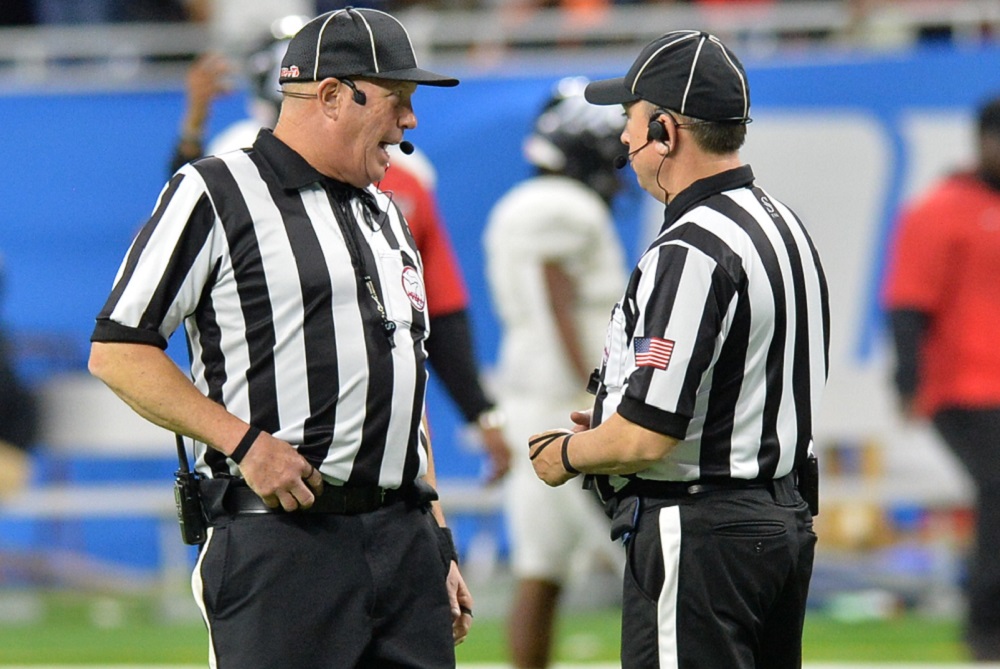
Be the Referee: 40-Second Play Clock
August 30, 2018
In this week's edition, assistant director Brent Rice explains how Michigan is continuing to experiment with a 40-second play clock in football.
Be The Referee is a series of short messages designed to help educate people on the rules of different sports, to help them better understand the art of officiating, and to recruit officials.
Below is this week's segment – 40-Second Play Clock - Listen
There’s an experiment taking place on a number of high school football fields across the state again this year. Michigan is experimenting with a 40-second play clock in football.
This is designed to provide more consistency from play to play as the ball must be snapped 40 seconds after the end of the previous play and is not dependent on the referee’s subjective signal.
When play is continuing without a stoppage, the 40-second play clock will be used. If play has been stopped for a time out or penalty, the play clock will be set at 25 seconds.
After two seasons, the feedback received from coaches and officials has been very positive, and there’s a possibility the Michigan experiment may become a new national playing rule soon.
Past editions
August 23: Football Rules Changes - Listen

Be the Referee: Intentional Grounding Change
By
Sam Davis
MHSAA Director of Officials
August 23, 2022
Be The Referee is a series of short messages designed to help educate people on the rules of different sports, to help them better understand the art of officiating, and to recruit officials.
Below is this week's segment – Intentional Grounding Change - Listen
New this year in football is a change to intentional grounding.
What’s staying the same? A quarterback in the free block zone – who throws a pass to an area with no receiver nearby – will continue to be flagged for intentional grounding. That’s a five-yard penalty and loss of down.
So what’s different? Now … a quarterback outside of the free blocking zone can legally throw the ball away as long as the pass lands past the original line of scrimmage. This used to be flagged for grounding, but is now legal.
In fact, this rule doesn’t just pertain to the quarterback. Any passer, outside of the free blocking zone, can throw the ball away as long as it lands past the line of scrimmage.

